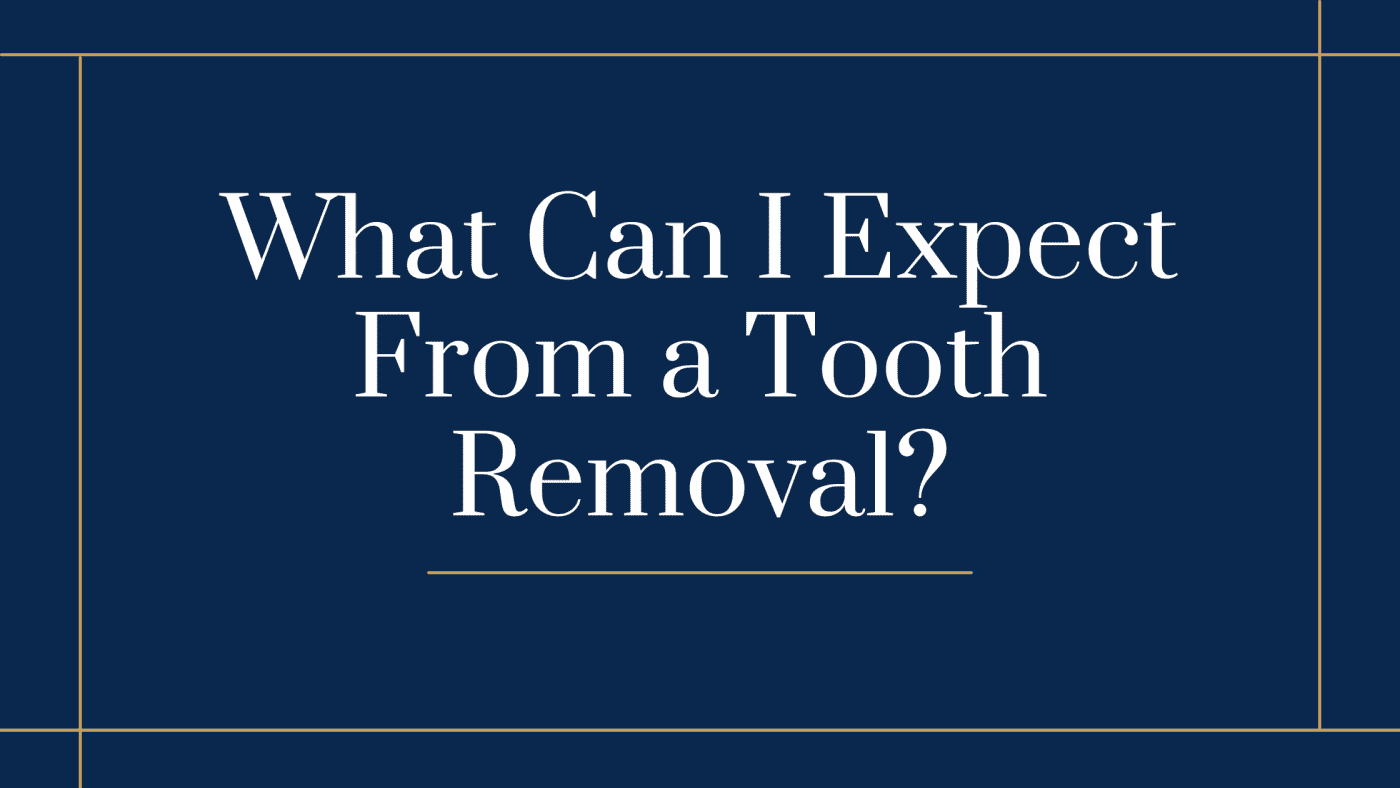What Can I Expect From a Tooth Removal?
Tooth removal, also known as tooth extraction, is one of many of the treatments that we provide here at NCDI. It is a procedure where the tooth is removed from the socket using an anaesthetic. Tooth removal will usually be the last resort when the tooth cannot be repaired in any other way. This article explains what you can expect from a tooth removal procedure.
There are many reasons why you might need this procedure:
- There are too many teeth in your mouth – there’s not enough space in your jaw
- You have severe tooth decay
- You have gum disease
- Because of an abscess (a collection of pus) on your gums or around your teeth
- You have a broken tooth that can’t be repaired
Before anything else, you will have a consultation with your dentist. During which, all of your treatment options will be discussed. Your dentist will also talk you through what will happen, before the procedure such as the pain etc. You will also discuss your medical/dental history with them. You should inform your dentist of any medications you are taking or if you have recently had surgery. Also if you have any allergies they should be aware of. It is important that you are honest and transparent with your dentist. This will help ensure that the procedure runs as smoothly as possible, without complications.
It is important that you feel at ease and comfortable before, during and after the procedure. Don’t be afraid to ask questions! We are a friendly practice and want to help you in any way possible. No question is a silly one!
During the Procedure
In the hours before a tooth removal procedure, it is important that you have had something to eat. The procedure will consist of having a local anaesthetic* injected into the area surrounding the tooth or teeth (if having multiple teeth removed). The dentist will then wait a couple of minutes to ensure the anaesthesia has taken effect, by asking you a few questions. Then, the dentist will widen your tooth socket and gently loosen the tooth first, before removing it. Overall, the procedure shouldn’t be painful; you should just feel some pressure. If you do feel pain, it is important that you let your dentist know this straight away. Your gum may bleed after the tooth is removed however this should only last for a couple of minutes.
What Happens After the Procedure?
Before leaving the practice, after your procedure, your dentist will discuss with you what the maintenance/healing will look like. In most cases, you will be recommended to take painkillers and use an antibacterial mouthwash. A follow-up appointment might be scheduled to check on the healing process (especially if it was a complicated procedure). However, if this is not the case, you should make sure that you are regularly looking after your teeth and gums.
In terms of side effects, you should only have discomfort for a few days afterwards. There is a chance of some swelling occurring. The best remedy for this is placing a bag of frozen peas (in a tea towel) on your side of the face where the pain is. You may notice some bleeding in your mouth; as this is mixed with your saliva. It may appear as if there is more blood than there actually is. It shouldn’t be anything to worry about, however, if you think you are experiencing more blood than you should, please contact us. The discomfort should completely settle down after 10 days maximum. However, you may experience some bruising for a couple of weeks and your jaw may feel stiff for a week, so it is important that you don’t force it open if this is the case.
The Recovery and Healing Process
In terms of recovery/healing, you should not rinse your mouth out, for at least 24 hours after the procedure. After 24 hours, you should then rinse the teeth with a salt water mouthwash (made using salt and hot, but not boiling water). Do this four times a day to keep the area clean. You should only eat soft, cold food once you first have your tooth removed so you don’t have to chew much. Stay away from eating hot food and having hot drinks, at least until the anaesthetic wears off. As if you do, there is a chance you might burn or scald your teeth.
It is important that you follow instructions not to drink alcohol for at least 24 hours and avoid smoking at least until the end of the day, after the procedure.
For a more detailed description of what a tooth removal looks like at NCDI, check out our Tooth Removal page, with more FAQs.
*Local anaesthetic is what we would most commonly use to block the pain however in some cases we can give you a sedative, where you will feel more relaxed/sleepy (this is particularly if you struggle with anxiety/nerves). There is also the option to have a general anaesthetic however this is only an option for young children or adults with learning difficulties and the procedure would be referred to take place in a hospital, not the practice.
